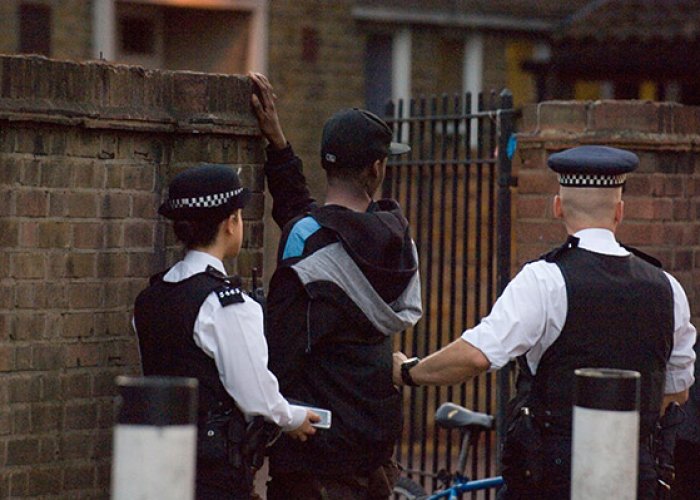This week the Home Office have published a long-overdue evaluation of their decisions in 2019 to relax vital safeguards surrounding Section 60 (s60) suspicion-less searches. We have been calling for it to be published, including through Freedom of Information requests, for two years as a key piece of evidence to inform the investigation into our super-complaint ‘More harm than good’.
The report once again shows that there is no robust evidence of any reduction in serious violence and, more disturbingly, there is no agreed theory of change as to how s60 searches might reduce crime.
This means that forces across the country have been taking different approaches regarding whether to inform the public that an order is in place, leading to confusion and a lack of transparency. We welcome the Home Secretary’s announced U-turn that police forces will now be encouraged to communicate s60 authorisations to the local community.
However, it is very concerning that this research evaluating the use of s60 did not include any engagement with individuals who have experienced stop and searches under this power, or any local grassroots organisations, to better understand the harms including to trust and confidence in the police.
Some participants who were interviewed, including police and community scrutiny leads, echoed the concerns raised in our super-complaint, that this controversial and disproportionality-used power is likely to cause more harm than good. It has the potential to alienate individuals, further fracture fragile community relations, and undermine preventative work with young people.
Others emphasised that more visible policing or the use of a dispersal order might suffice, without the need to search people without reasonable grounds. They raised concerns that blanket s60 powers are being used as a ‘knee jerk reaction’ to showcase action or to access additional officer resources, normalising their use rather than treating s60 as an exceptional power.
The research suggests, at best, there might be a minor short-term deterrent effect, but also highlights the potential unintended consequences of displacing violent crime to other areas or merely delaying it. Critically, the research suggests that any potential short-term benefits could be outweighed by the long-term impact on communities that might be discouraged from engaging with the police to provide valuable intelligence necessary for crime prevention and resolution.
Conservative MP Tim Loughton raised concerns in Parliament this week about the lack of safeguarding measures for children searched under this power. Contrary to the Home Secretary’s recent false assertion in Parliament (which was later corrected), government data reveals that 1,800 children were searched without reasonable grounds last year. Unfortunately, the evaluation did not address this issue.
The lack of effective community scrutiny, both before and after the authorisation of a s60 order, revealed by the research report is deeply concerning and confirms the findings of our Stop and Scrutinise report. The new framework for community scrutiny being produced by the Home Office is welcome, but an independent national oversight body is needed to ensure consistent compliance across forces.
The recent Casey Review called for a ‘fundamental reset’ of stop and search given the significant breakdown in trust and confidence in the police. Yet, this week the Home Secretary has instead encouraged police to increase its use.
We anticipate the outcome of the super-complaint investigation by HM Inspectorate of Constabulary (HMIC), College of Policing and Independent Office of Police Conduct (IOPC) into the use of s60 and community scrutiny of stop and search will be published in the autumn. We have called for the repeal of s60 and the establishment of a national oversight body for all stop and search activities. This evaluation provides further evidence reinforcing the need for our recommendations to be accepted and actioned urgently, and for the resources to instead to be focused on tackling the root causes of violent crime.



